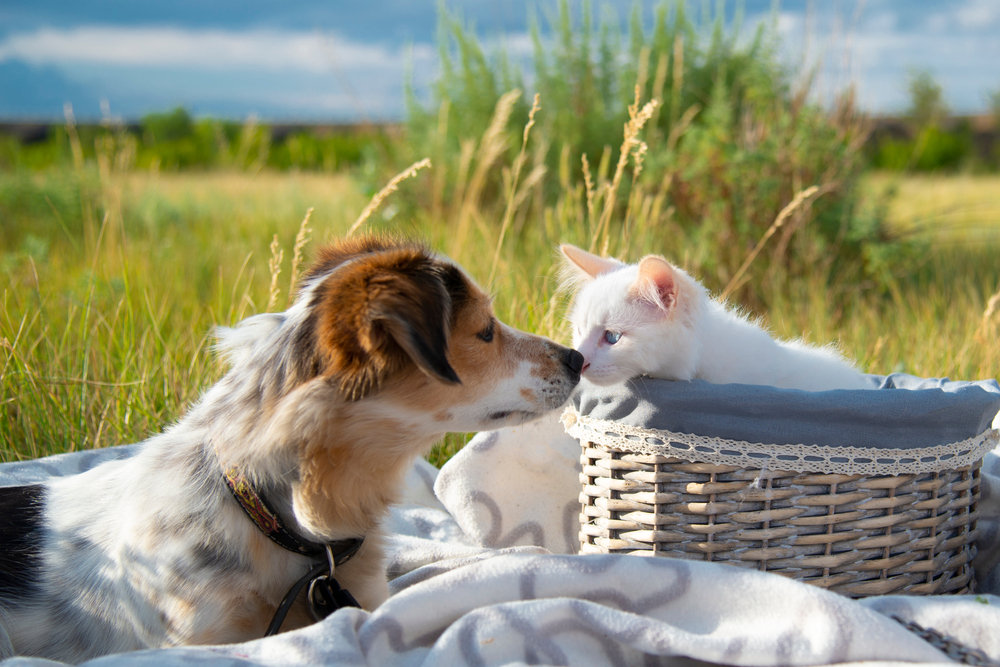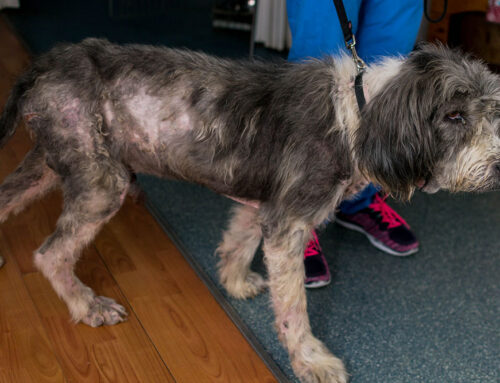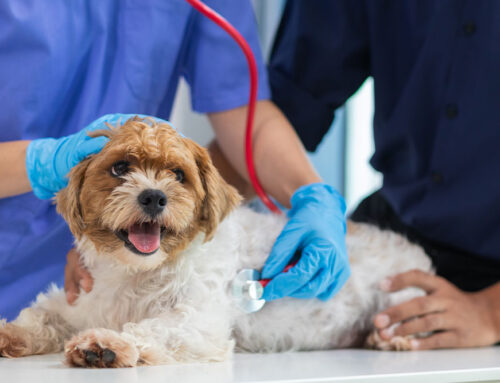When Every Minute Matters: Emergency Care for Puppies and Kittens
Young pets are energetic but vulnerable. Illnesses that an adult animal could tolerate often become critical in a matter of hours for puppies and kittens. From infections to choking hazards, knowing what constitutes an emergency- and getting to the vet fast- can make all the difference in these fragile first months of life.
At Boca Midtowne Animal Hospital, our Fear Free certified team provides urgent care for young pets, offering stabilization and expert guidance when every second counts. We accept emergency calls until midnight because we know that emergencies don’t wait for business hours.
Why Young Pets Face Greater Risk
Puppies and kittens enter the world with developing immune systems that haven’t yet built defenses against common infections. Their small size means they dehydrate faster, lose body heat more quickly, and have less metabolic reserve to fight illness.
What might cause mild discomfort in an adult dog or cat can spiral into a life-threatening crisis within hours for a young pet. Persistent vomiting, diarrhea, or refusing food depletes their limited energy stores rapidly. Toy breed puppies are especially vulnerable to hypoglycemia when they aren’t eating enough.
The rule of thumb with young pets is simple: when in doubt, seek veterinary care. Acting quickly protects their fragile systems and prevents minor problems from becoming major emergencies.
Recognizing Emergency Symptoms in Puppies and Kittens
Knowing what’s normal and what requires immediate attention can save your pet’s life. Below are the most critical warning signs that demand urgent veterinary care.
Breathing Problems
Respiratory distress is always an emergency. Watch for open-mouth breathing, wheezing, labored chest movements, or blue-tinged gums. Young pets may develop breathing difficulties from infections, congenital heart or airway defects, or foreign objects lodged in their throat.
Certain breeds face unique vulnerabilities. Brachycephalic puppies such as Bulldogs, Pugs, and French Bulldogs have compromised airways that make them prone to respiratory crises, especially during stress, heat, or excitement. Our facility offers specialized BOAS laser surgery for severe cases, which can provide a lifetime of improved breathing comfort.
Keep your pet calm and transport them to the veterinarian immediately. Stress worsens respiratory compromise, so minimize handling and maintain a quiet environment during transport.
Vomiting and Diarrhea
Occasional vomiting or soft stool may not be alarming, but persistent episodes- especially with blood- require immediate attention.
Parvovirus in puppies causes severe, bloody diarrhea and vomiting that can lead to fatal dehydration within 24 hours. Vaccination for parvo should start no later than eight weeks of age, and continue every 3-4 weeks until at least 16 weeks- up to 20 weeks for some at-risk pets.
Parasites such as roundworms, hookworms, and coccidia also cause gastrointestinal distress in young pets. In severe cases, intestinal parasites can cause malnutrition and anemia. Treatment typically includes fluid therapy, anti-nausea medications, and deworming protocols. Our in-house pharmacy ensures immediate access to medications when time matters most.
Garbage gut occurs when curious pets raid trash cans and consume spoiled food or toxic substances. Symptoms include vomiting, diarrhea, and abdominal pain.
Foreign object ingestion happens frequently with puppies and kittens. Strings, socks, toys, and small household items can cause life-threatening intestinal blockages. Warning signs include repeated vomiting, straining without producing stool, abdominal pain, and loss of appetite.
Seizures and Loss of Coordination
Convulsions, tremors, stumbling, or sudden collapse signal serious neurological problems. Toxin ingestion, head trauma, infections, or congenital disorders can all trigger seizures in young pets.
Managing seizures often requires anticonvulsant medication and ongoing monitoring. If your puppy or kitten experiences a seizure, note the duration and any unusual behaviors, then seek immediate veterinary care.
Trauma and Injuries
Young pets are accident-prone. Falls from furniture, being stepped on, doors closing on tails or paws, car accidents, and bites from other animals all occur frequently. Signs of trauma include limping, swelling, visible wounds, bleeding, or pale gums indicating shock.
Broken bones are especially common in mischievous puppies and kittens who sneak out doors or fall from heights. Even a tumble from a bed or windowsill can be enough to break fragile bones of young pets.
Chewing hazards pose constant threats. Electrical cords can cause burns or shocks, while unsafe chew toys may splinter and cause mouth injuries or intestinal obstructions.
Control any bleeding with gentle pressure using clean gauze, keep your pet calm and still, and transport them carefully to avoid worsening injuries. Our veterinary services include digital radiography and diagnostic tools to assess internal injuries quickly.
Toxin Exposure
Puppies and kittens explore the world with their mouths, making poisoning a common emergency. Human medications, household cleaners, chocolate, xylitol, antifreeze, and toxic plants all pose serious threats.
If you suspect toxin ingestion, contact the ASPCA Poison Control hotline immediately and head to the veterinarian. Symptoms such as vomiting, excessive drooling, tremors, or seizures indicate poisoning. Prevention through pet-proofing your home is your best defense.
Urinary Obstruction and UTIs
Straining to urinate, crying during urination, or producing only drops of urine indicates a possible blockage or severe infection. Male kittens are especially prone to urinary blockages, which become fatal within 24 to 48 hours without treatment.
Eye Injuries and Conjunctivitis
Young pets sustain eye injuries from roughhousing, scratches, or trauma. Cloudiness, swelling, discharge, squinting, or holding an eye closed all require prompt veterinary attention to prevent vision loss or infection. Corneal ulcers are especially common for curious puppies who get too close to an unhappy cat. Kittens, especially those who come from shelters or outdoor populations, are more likely to have upper respiratory infections, which can cause severe conjunctivitis.
Preparing for Emergencies and Planning Ahead
Emergencies can happen anytime, so being prepared protects both your pet’s health and your peace of mind. Keep a pet first-aid kit readily accessible with essentials like gauze and bandages, antiseptic wipes, a digital thermometer, tweezers for splinters or ticks, saline solution for rinsing wounds, and emergency contact numbers for your veterinarian and poison control. Having these items on hand allows you to act quickly while arranging professional care.
Financial preparation is equally important. Unexpected veterinary bills can be stressful, especially for young pets that may need intensive treatment. Exploring pet insurance options early- before health issues arise- provides long-term security and flexibility. Insurance helps ensure you can make medical decisions based on what’s best for your pet rather than immediate cost concerns.
For additional financial support, our affordable pet care options make it easier to plan ahead for wellness visits and emergency care alike, so you can stay focused on what matters most: your pet’s safety and recovery.

Protecting Your Young Pet’s Health
Emergencies in puppies and kittens escalate quickly, but recognizing warning signs and acting fast dramatically improves outcomes. At Boca Midtowne Animal Hospital, our AAHA-accredited facility combines advanced diagnostics with Fear Free certified care to provide young pets with expert treatment in a low-stress environment.
Our wellness care programs help prevent emergencies through regular monitoring, vaccinations, and parasite control. And when urgent situations arise, our experienced team is ready to provide immediate stabilization and care.
Don’t wait when your puppy or kitten needs help. Contact us or request an appointment today to establish care with a veterinary team that prioritizes your young pet’s safety and comfort.






Leave A Comment